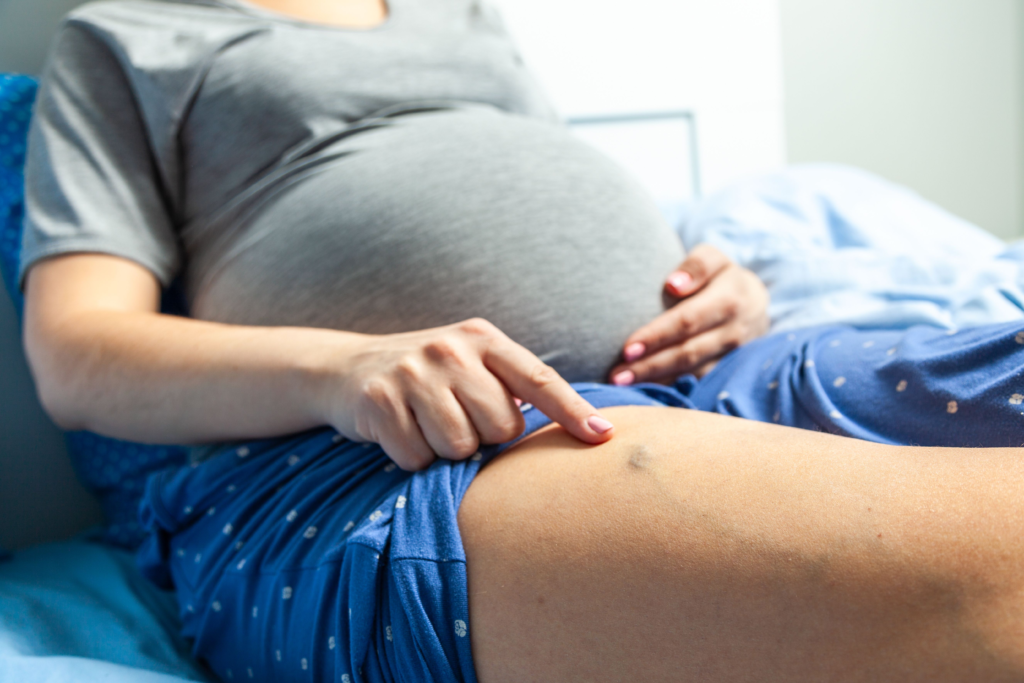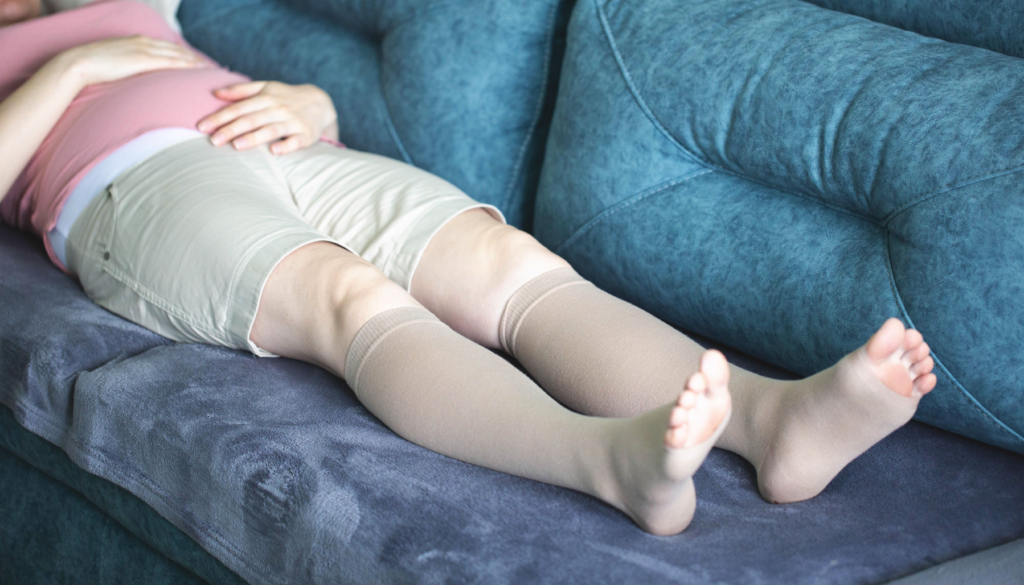Pregnancy can be an incredibly joyous and special time for a woman, yet for those with lipedema; it can also be a time of physical and emotional distress. Lipedema is a chronic and progressive condition that causes an abnormal and disproportionate accumulation of fat in the legs, hips, buttocks, and arms. During pregnancy, lipedema symptoms can become exacerbated, leaving many women feeling overwhelmed and frustrated. Fortunately, some strategies and tips can be employed to help manage lipedema and pregnancy during this important period of a woman’s life. With the right guidance and awareness, pregnant women with lipedema can still enjoy a healthy and happy pregnancy.
Causes of Lipedema
There is currently no known cause of lipedema. However, some researchers speculate that lipedema may originate from a dysfunctional lymphatic system. As a result, the lymphatic fluid in the body is unable to drain properly, causing fluids to build up in the legs, hips, buttocks, and arms. As the condition progresses, the excess fat in the limbs can become firm, fibrotic, and more difficult to manage. Some research suggests a potential genetic link to lipedema. In addition, certain lifestyle factors, such as obesity, hormonal changes, and certain medications, can exacerbate symptoms of lipedema and make the condition more difficult to manage.
Symptoms of Lipedema
Early signs and symptoms of lipedema include a sensation of heaviness and discomfort in the legs and lower body. As the condition progresses and more fat builds up, legs may swell and become more painful. Swelling in the legs may cause the ankle to enlarge and the skin to become thick and tender.


The skin on the legs may also become hardened, thick, and discolored due to excessive fat deposits. As lipedema progresses, it can also cause the hips, buttocks, and abdomen to swell and become enlarged. The upper and lower body may become disproportionate, with the upper body appearing underdeveloped while the lower body appears disproportionately large.
What to Expect During Pregnancy with Lipedema
During pregnancy, hormones and increased fluid retention can exacerbate lipedema symptoms, causing the legs and lower body to swell even more. Many women may experience lipedema for the first time during pregnancy and can feel overwhelmed by the sudden and significant changes to their bodies. Unfortunately, many healthcare providers are unfamiliar with lipedema and its symptoms, making it difficult for women with lipedema to receive the proper support and treatment during pregnancy. Pregnant women with lipedema should seek out a skilled and knowledgeable healthcare provider who is aware of the signs and symptoms of lipedema and can provide the proper support and treatment.
Tips for Managing Lipedema and Pregnancy
During pregnancy, women with lipedema should make an extra effort to stay hydrated and consume plenty of fiber and water. Increasing fiber intake can help reduce inflammation in the body and assist in easing swelling in the legs and abdomen. In addition, wearing compression garments can also help to reduce swelling in the legs and lower body. It is important that pregnant women with lipedema wear graduated compression stockings throughout the day and while sleeping. It is also essential that pregnant women with lipedema get plenty of rest and use stress-reduction strategies to manage anxiety and reduce fatigue. Managing stress can go a long way in helping to ease swelling in the legs, calm the mind, and promote a healthy pregnancy.


Treatment Options for Lipedema During Pregnancy
Currently, there is no known cure for lipedema. However, there are treatment options that can help to improve symptoms, mobility, and overall quality of life. Wearing Compression Garments – Compression garments, such as compression socks, compression pants, or knee-highs, can help to reduce swelling in the legs and lower body. It is essential to wear compression garments during the day and while sleeping to get the most benefits. Diet – Maintaining a well-balanced diet that is rich in fiber, protein, and calcium can help to improve overall health and reduce inflammation in the body. Eating a variety of healthful foods can also help to reduce cravings and prevent feelings of nausea during pregnancy. Exercise – Participating in gentle forms of exercise can help improve overall health and reduce symptoms of lipedema. Exercises should be modified to accommodate for swelling in the legs and ankles. Lifestyle – Practicing good stress management and creating a healthy lifestyle can go a long way in reducing symptoms of lipedema and improving overall health and well-being.
Self-Care Strategies for Pregnant Women with Lipedema
Pregnant women with lipedema can find themselves needing to advocate for themselves and make specific lifestyle changes to manage their condition. They must find support and encouragement from loved ones to help make this transition easier. It is also essential that pregnant women with lipedema seek out a skilled and knowledgeable healthcare provider who is aware of the signs and symptoms of lipedema and can provide the proper support and treatment. It can also be helpful to connect with other women who have lipedema to find support and encouragement. Many online communities are dedicated to helping women with lipedema connect and support one another.
Coping with Stress and Anxiety
Pregnant women with lipedema may experience significant anxiety and stress throughout their pregnancy. They must take time for self-care and relaxation. Some helpful tips for reducing anxiety and stress include: – Practicing good stress management: Getting enough sleep, eating well, managing time, and surrounding yourself with positive people and thoughts can go a long way in reducing anxiety and stress. – Using diaphragmatic breathing: This type of breathing can help to calm the mind and promote feelings of peace and relaxation. – Practicing mindfulness: Mindfulness can be a helpful technique for pregnant women with lipedema experiencing anxiety. – Connecting with others: Interacting with loved ones and finding support and encouragement can go a long way in reducing anxiety and stress.
Conclusion
Lipedema is a chronic and progressive condition that causes an abnormal and disproportionate accumulation of fat in the legs, hips, buttocks, and arms. During pregnancy, lipedema symptoms can exacerbate and leave many women feeling overwhelmed and frustrated. Fortunately, some strategies and tips can be employed to help manage the condition during this critical period of a woman’s life. With the right guidance and awareness, pregnant women can enjoy a healthy and happy pregnancy, regardless of their diagnosis.




